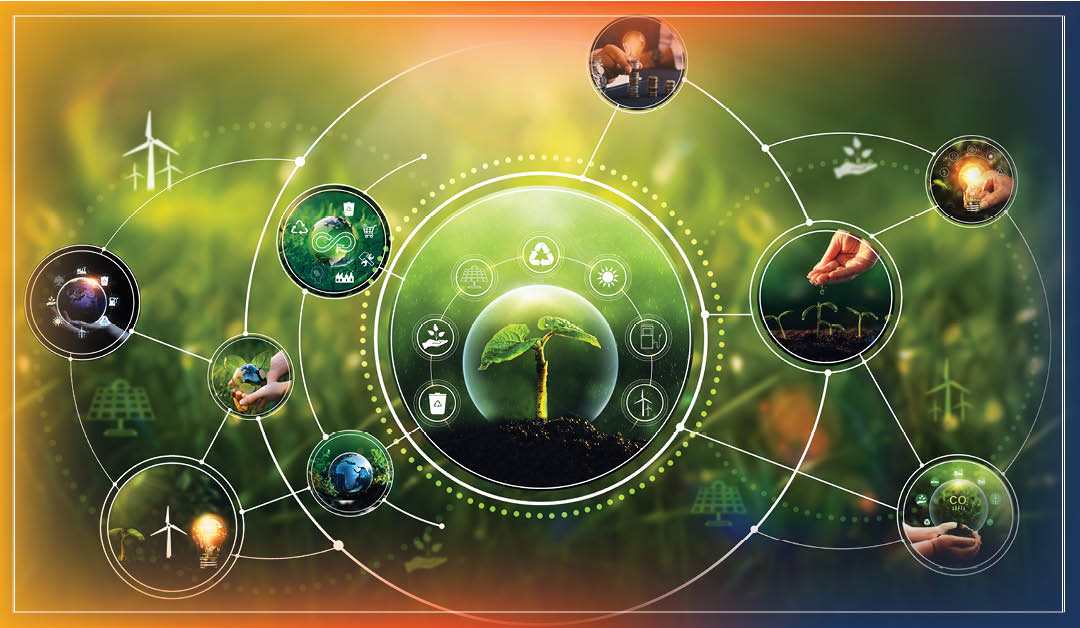What if your next corporate event could inspire not just great business connections, but also a commitment to a greener future?
As businesses increasingly recognize their role in combating climate change, the push for sustainability touches every aspect of corporate life. In the early 2000s, just 35 % of the world’s top 250 companies (G250) reported on their sustainability efforts. Today, nearly all of them do. The World Economic Forum notes that many companies have embraced The Stakeholder Metrics—a framework focused on people, planet, prosperity and governance.
Events, in turn, are increasingly measured by their environmental impact. Fortunately, making corporate events more sustainable doesn’t require an overhaul. With a few thoughtful changes, businesses can host gatherings that are both impactful and eco-friendly.
Here are eight simple ways to make your events more sustainable:
1. Appoint a Sustainability Champion
 One common reason sustainability initiatives fail is the absence of a dedicated leader. The number of businesses hiring Chief Sustainability Officers has tripled in recent years. Even if you’re not ready for a CSO, appointing a team member to lead sustainability keeps efforts on track, from LED lighting and digital signage to water-soluble badges and eco-friendly giveaways.
One common reason sustainability initiatives fail is the absence of a dedicated leader. The number of businesses hiring Chief Sustainability Officers has tripled in recent years. Even if you’re not ready for a CSO, appointing a team member to lead sustainability keeps efforts on track, from LED lighting and digital signage to water-soluble badges and eco-friendly giveaways.
Without someone at the helm, sustainability efforts can become scattered and lose momentum.
2. Ditch the Plastic
 Plastic bags and bottles are major pollution sources. Over a million plastic bottles are sold every minute, creating 25 million tons of waste each year. Offer reusable stainless-steel bottles and water stations, plus canvas swag bags with your logo—better for the planet and great for brand visibility.
Plastic bags and bottles are major pollution sources. Over a million plastic bottles are sold every minute, creating 25 million tons of waste each year. Offer reusable stainless-steel bottles and water stations, plus canvas swag bags with your logo—better for the planet and great for brand visibility.
3. Choose Compostable Utensils & Dishware
 Large events create huge waste from disposable plastics. An estimated 40 billion plastic utensils are discarded annually in the U.S. Switch to bamboo, wood, or corn-based cutlery, and palm-leaf or sugarcane plates—many biodegrade within a year in commercial compost.
Large events create huge waste from disposable plastics. An estimated 40 billion plastic utensils are discarded annually in the U.S. Switch to bamboo, wood, or corn-based cutlery, and palm-leaf or sugarcane plates—many biodegrade within a year in commercial compost.
4. Calculate Food Wisely & Donate Leftovers
 Roughly one-third of all food is wasted annually. Rather than discard uneaten meals, donate them to local shelters or food banks where regulations allow. Post-event, audit food usage to reduce waste next time.
Roughly one-third of all food is wasted annually. Rather than discard uneaten meals, donate them to local shelters or food banks where regulations allow. Post-event, audit food usage to reduce waste next time.
Many cities offer food-pickup programs, making donation easy.
5. Choose Locations with Strong Public Transit
 Select venues near transit or within walking distance of hotels and restaurants. Reducing shuttles and car rentals cuts your event’s carbon footprint significantly.
Select venues near transit or within walking distance of hotels and restaurants. Reducing shuttles and car rentals cuts your event’s carbon footprint significantly.
6. Promote Your Sustainability Efforts
 Publicizing your initiatives lets attendees feel good about participating and shows other businesses what’s possible. With 84 % of consumers considering sustainability, sharing your story is also smart marketing.
Publicizing your initiatives lets attendees feel good about participating and shows other businesses what’s possible. With 84 % of consumers considering sustainability, sharing your story is also smart marketing.
Sharing your sustainability successes is a win-win for your brand.
7. Host a Multi-City Roadshow
 A multi-city roadshow reduces flights and hotel stays—travel can be 70–90 % of an event’s emissions. Reusing sets across locations cuts waste too.
A multi-city roadshow reduces flights and hotel stays—travel can be 70–90 % of an event’s emissions. Reusing sets across locations cuts waste too.
More local events mean fewer flights and hotel stays—big energy savings without lower attendance.
8. Vet Your Vendors
 Ensure your partners share your green goals. Ask about carbon footprint, eco-reporting, and ratings—like-minded vendors make collaboration smoother.
Ensure your partners share your green goals. Ask about carbon footprint, eco-reporting, and ratings—like-minded vendors make collaboration smoother.
Setting a Sustainable Example at STAGEDGE
Stagedge integrates sustainability throughout our work. We hold a Silver rating from EcoVadis and have joined the Science Based Targets initiative. With decades of low-carbon event experience, we can align your event with your sustainability values.
For more tips, see how to craft a conference that meets your sustainability goals.
Stagedge: Creating Immersive Experiences for 50 years — Boston’s premier full-service event-production company, delivering live, virtual and hybrid experiences worldwide.
